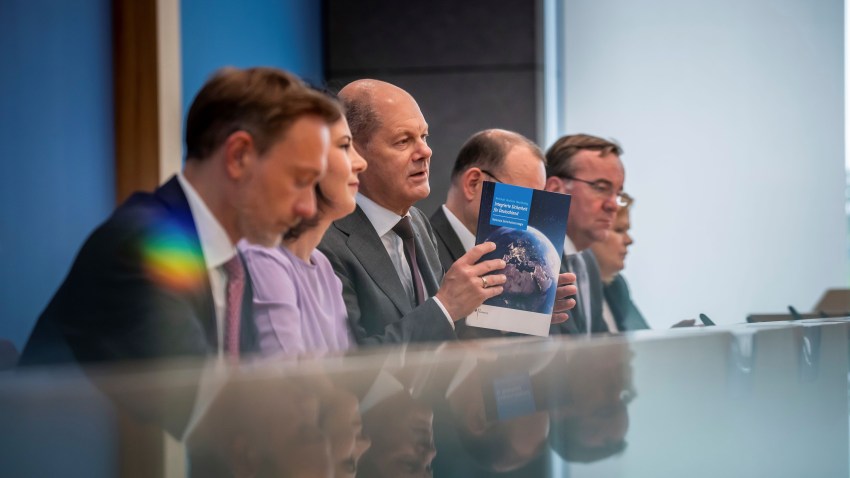“To promote world peace in a united Europe,” begins the introduction to Germany’s recently released and highly anticipated National Security Strategy, or NSS. Modeled after the periodically produced U.S. document of the same name, the inaugural German edition is the much-hyped roadmap for the so-called Zeitenwende, or turning point, in Berlin’s national security posture. Russia’s invasion of Ukraine compelled Germany to reevaluate its economic and security policies both in Europe and throughout the world, and to develop new approaches that reflect the realities of emerging threats.
Up to this point, the German foreign policy establishment relied deeply on the post-World War II strategy of keine experimente, or no experiments, which focused on making sure Germany was seen as a good-faith and peaceful actor on the world stage and a steadfast champion of the rules-based international order. German leaders also incorporated a Wandel durch Handel, or change through trade, strategy toward authoritarian regimes in the hopes that engagement could serve as an impetus for democratic change.
Now, however, the governing Ampelkoalition, or traffic light coalition, comprising Chancellor Olaf Scholz’s Social Democrats, the Greens and the Free Democrats is seeking a general course correction, championing an approach it calls “integrated security” that is both values-based and interest-driven. Moving forward, German foreign policymakers, as well as those of its NATO and European Union allies, will have to assess whether or not the NSS offers a viable and credible plan of action, or if there is a mismatch between Berlin’s ambitious recent rhetoric and pledges on one hand, and the newly laid-out pathway on the other.

